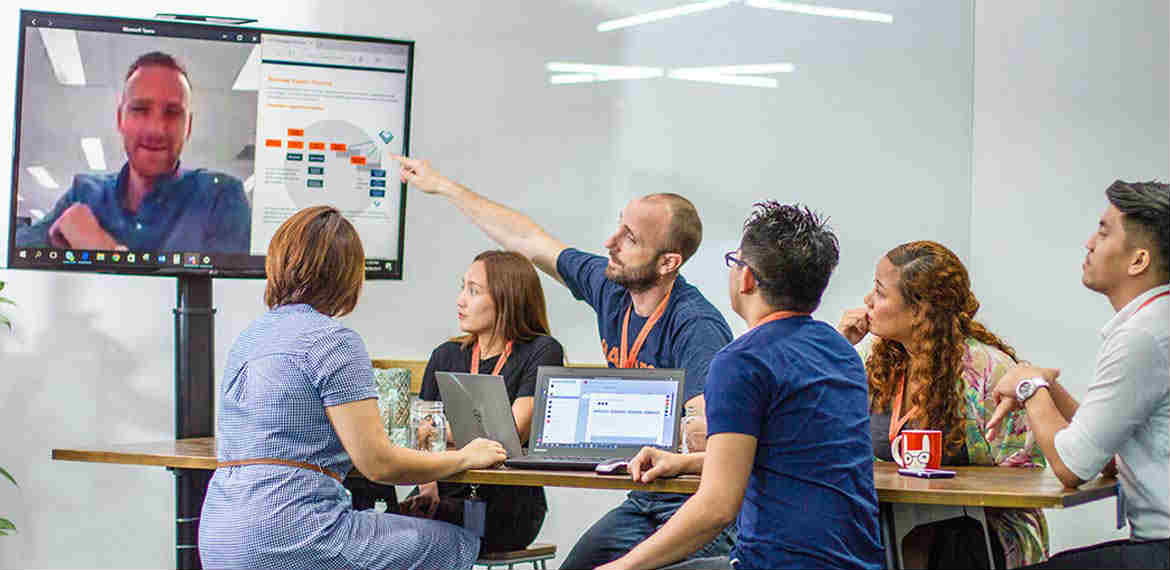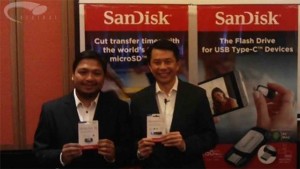THE GREATER PROMISES OF DIGITAL FOR BPOs
According to Hammerjack, SMEs are often much tougher customers than large enterprises – a thought echoed by PIDS’s own study. Because smaller businesses lack the resources and capacities of large companies, they are often much more averse to perceived risks in both digital transformation and offshoring, even if these offer significant cost savings over time.
This makes winning the trust of prospects much more difficult in the Australian SME space. To get over this hump, Philippine BPOs must be able to present themselves as capable and trustworthy, while responding to escalations and inquiries speedily.
He adds “The key to a fully managed service is to use effective and efficient collaboration tools. Hammerjack uses the same digital solutions internally that we provide direct to Australian SMEs, enabling a quality outsourced service model for our clients at a lower cost.”
This is something that Hammerjack has improved on with the help of Microsoft Teams, the new chat-based workplace that comes with the Office 365 suite. Since its beta release, Teams – with its enterprise-level security, threaded chats, real-time file-editing, and full integration with other Office 365 applications – has become a central part of the company’s day-to-day collaborative workflow.
Roy Figueroa, site director of the Makati office, says: “Teams has made internal collaboration a lot easier. It allows us to quickly call up a team for, say, a new proposal, update shared files in real time, and to see that prompt action is being taken on our to-do’s. It’s also allowed us to do away with about 50 percent of internal e-mail. People tend to respond differently to e-mail, and now that it’s all about Teams internally, our work is at once more efficient, seamless, convenient, and better organized.”
Mitch Yano, a process transitions lead, agrees: “The way it integrates with other Microsoft tools makes Teams almost like a one-stop shop. You can log minutes of meetings; post comments; set to-do lists and checklists according to our internal teams, and even ‘like’ messages and use emojis. All this makes Teams a very good project management application, even if it’s designed as a collaboration tool first of all.”
This ease of collaboration may be the key for other outsourced service providers to successfully sell to Australian SMEs, and deliver promised outcomes. Making sure these results – whether sales outcomes or transactional outcomes – are delivered consistently to a high quality and to a rational, clearly established process is something that Hammerjack has been very successful at, with the aid of tools like Teams, Office 365, and Dynamics 365.
The rolling out of these Microsoft tools were an integral part of Hammerjack’s rapid growth in the past year. “At first, Hammerjack was focusing on a smaller number of clients. They were adopting the clients’ processes, bringing them offshore, but Hammerjack didn’t have the technology background and the BPO background back then to make managed services really attractive for Australian SMEs,” Mault points out.
“After we came on board in July 2016, we accelerated what Hammerjack could do for SMEs across a wider range of services, and at more competitive transactional pricing. And that was done by embedding key processes in an approach to driving productivity and quality, and through adopting Microsoft technology,” he adds.
“When the company started, they had an array of different applications, and it was really messy. The applications weren’t talking to one another, and they had an application for this and an application for that. Once, we switched everything over to Microsoft, we could collaborate more easily to put together proposals, while making our service delivery more efficient as well.”
PAYING FOR OUTCOMES AS THE GREAT EQUALIZER
The PIDS study also points out that cost remains a big hurdle for many Australian SMEs, a fair conclusion considering that these businesses don’t have the economies of scale needed for traditional offshoring to work. Hammerjack solves this problem by offering a transactional model for offshore services, in contrast to more common seat-leasing and its co-managed resources.
According to Mault, the efficiencies borne by digital transformation are a prerequisite for this transactional offering: “The Microsoft stack helps us maintain a cross-functional team of skilled people, letting us queue work and offer transactional pricing to SMEs instead of a fully dedicated resource, which can be a bit concerning for small businesses. If you give them an option to pay just for a transaction or an outcome, like better customer engagement or optimizing operations in one instance, then it becomes something smaller businesses are more willing to try. It’s low-cost and low-risk, and it lets them see if IT-enabled offshoring is something they’ll want to commit to more in the long-term.”
Hastings also points out that start-ups need to be flexible, which makes a cost-effective transactional model more appealing: “It’s natural with the rate of change we’re seeing that if you’re not responsive, small businesses get nervous, this takes focus and capacity off their core business, so it’s very important to provide a proactive flow of information and hit the right answer quickly, that’s something that Microsoft is allowing us to do.
Its also important to understand SMEs are constantly learning, so there’s a need to take them through a journey towards successfully leveraging digital, whether that be rolling out Dynamics 365 (CRM) into their business or taking some of their internal processes to the Philippines.”
“If you’re talking about digital transformation, and not pursuing that transformation yourself, then you’re probably not the right partner for start-ups. Dealing with new technology has given us credibility in the eyes of many small businesses.” he adds.











